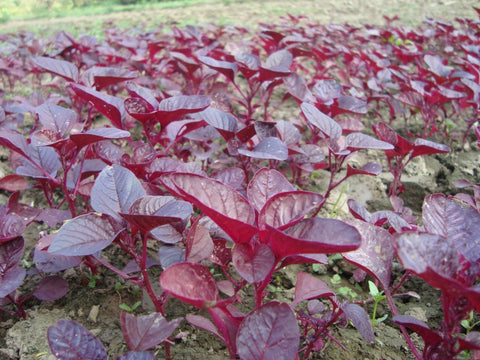Discover the Athlete’s Secret Weapon: How to Boost Nitric Oxide Levels Naturally
Do you find yourself wondering how to boost nitric oxide levels naturally? Nitric oxide (NO) is a naturally occurring molecule that plays a crucial role in unlocking improved athletic performance and overall well-being. With its function in supporting healthy blood flow and circulation, many athletes and health-conscious individuals are seeking natural methods to elevate their nitric oxide levels.
While beet juice and red spinach extract are commonly touted as natural enhancers of nitric oxide, there are a range of alternative strategies for achieving a similar goal. This article delves into the realm of nitric oxide enhancement, with a specific focus on the tangible benefits of naturally boosting nitric oxide levels.
Understanding Nitric Oxide and Its Role in Athletics
Nitric oxide (NO), a simple molecule composed of one nitrogen and one oxygen atom, holds a pivotal role in shaping athletic performance. Through its ability to relax blood vessels, NO supports healthy vasodilation, leading to improved oxygen delivery to muscles during exercise. This mechanism translates directly into enhanced endurance as muscles receive optimal oxygen supply, allowing athletes to push their limits.
Beyond oxygen transport, nitric oxide influences muscle function on a cellular level. It facilitates glucose uptake by skeletal muscles and supports the creation of new mitochondria, which are essential for energy production. Furthermore, NO's role in redox signaling enables it to counter oxidative stress, a common factor contributing to post-exercise muscle fatigue.
In the realm of athletic performance, nitric oxide takes charge as a key player, orchestrating essential functions that lead to success. As we explore various strategies for naturally boosting NO levels, its vital role in improving both performance and recovery becomes clear, providing a route to enhancing athletic potential.
Natural Ways to Boost Nitric Oxide Levels
Dietary Approaches
One of the natural ways to boost nitric oxide levels is through diet and nutrition. Let's delve into the array of options that can amplify your NO production:
Eat Nitrate-Rich Foods
The key to unlocking enhanced nitric oxide levels lies in embracing foods rich in nitrates. These nitrates, found abundantly in various vegetables and supported by citrus fruits, many berries, and tart cherries, fuel the body's nitric oxide synthesis. The standouts in the NO category are red spinach and beets, both robust sources of dietary nitrates.
Focus on Red Spinach and Beets: Potent Sources of Nitrates
Red spinach and beets stand tall as potent allies in the quest to elevate nitric oxide levels naturally. Packed with dietary nitrates, these two vegetables serve as the building blocks for nitric oxide production within the body. As you consume red spinach and beets, these nitrates undergo a fascinating transformation, converting into nitric oxide, thereby supporting healthy blood flow and oxygen delivery to your muscles.
Maintain a Functional, Whole Food Diet
While red spinach and beets shine as leading sources of dietary nitrates, there are plenty of other foods that support NO synthesis. These include arugula, kale, pomegranate, watermelon, and various nuts.
These additions to your plate offer a dynamic range of flavors while contributing to nitric oxide production. Alongside nitrate-rich foods, opt for low-sugar choices and incorporate omega-3 fatty acids found in algae and flaxseeds. These dietary elements further contribute to promoting overall cardiovascular health.
Incorporating these dietary approaches—rich in nitrates, amino acids, low sugar, and omega-3—offers a multifaceted approach to naturally enhancing nitric oxide levels. By embracing a diverse range of foods that fuel nitric oxide synthesis and support cardiovascular well-being, you're taking significant strides towards optimizing your athletic performance and overall health.
Exercise and Physical Activity
If you’re wondering how to boost nitric oxide levels naturally, exercise is a pivotal cornerstone. Engaging in regular physical activity is a cornerstone of the natural approach to elevating nitric oxide levels. Let's dive into the dynamic connection between exercise and NO production:
Exercise Fuels Nitric Oxide Synthesis:
Physical activity triggers the body's natural mechanisms for nitric oxide synthesis. As you move, your blood vessels respond by producing more nitric oxide, which in turn promotes vasodilation. This process boosts blood flow and oxygen delivery to active muscles, amplifying their endurance and overall performance.
Balance Cardiovascular Exercises and Strength Training:
Two categories of exercises stand out in the context of nitric oxide enhancement: cardiovascular exercises and strength training. Cardiovascular workouts like running, cycling, and swimming stimulate the production of nitric oxide, leading to enhanced blood vessel dilation. Meanwhile, strength training, which includes resistance exercises and weightlifting, also contributes to nitric oxide production, promoting muscle growth and improving energy utilization.
Create an Effective Workout Routine:
For those seeking to harness the benefits of nitric oxide through exercise, specific workout routines are a great resource. When it comes to natural ways to boost nitric oxide levels, you’ll want to alternate between aerobic and anaerobic exercises.
- Aerobic Exercises: Aerobic activities like jogging, brisk walking, and swimming stimulate nitric oxide production, boosting blood flow and oxygen delivery.
- Anaerobic Exercises: Anaerobic workouts, characterized by short bursts of high-intensity effort, also trigger nitric oxide synthesis. Activities like sprinting or intense weightlifting can yield notable benefits.
Embrace Interval Training:
Interval training presents a strategic approach to promoting nitric oxide production. This involves alternating between periods of high-intensity exercise and active recovery. The intensity spikes during interval training prompt the body to produce nitric oxide, contributing to improved athletic performance.
Lifestyle Factors
In general, all of the natural ways to boost nitric oxide levels can easily integrate into your everyday lifestyle. Let's explore additional lifestyle habits that can support NO production:
Prioritize Proper Hydration:
Staying adequately hydrated is a foundational step to enhancing nitric oxide synthesis. Hydration supports the body's ability to produce nitric oxide, ensuring that blood vessels remain pliable and capable of effective vasodilation. This translates into improved blood flow, oxygen delivery, and nutrient transport to active muscles during exercise.
To make it easier to maintain optimal hydration levels, keep a reusable water bottle handy throughout the day. Monitor urine color to gauge hydration levels, typically striving for a pale yellow. It’s also a great idea to snack on water-rich foods like fruits and vegetables to supplement fluid intake.
Enhance Sleep Hygiene:
Quality sleep serves as an invaluable catalyst for the natural elevation of nitric oxide levels. During sleep, the body engages in reparative processes that include the production of nitric oxide. This enhances blood vessel health, contributing to efficient blood flow and oxygen delivery during wakeful hours.
If you want to enhance sleep hygiene, maintain a consistent sleep schedule, create a conducive environment for sleep, and strive to limit screen time before bed to promote better sleep quality.
Get Outside and Lower Stress Levels:
Spending time in nature is a great way to experience the dual benefits of boosting nitric oxide levels and reducing stress. Spending time in natural sunlight triggers the release of nitric oxide from your skin, supporting its production.
Additionally, immersing yourself in nature and engaging in outdoor activities can help lower stress levels, which positively impacts nitric oxide function. Whether it's a leisurely walk, a hike in the woods, or simply enjoying fresh air, the outdoors offers a holistic approach to enhancing both your physical and mental well-being.
How to Boost Nitric Oxide Levels Naturally: Nutrition, Movement and Lifestyle Habits
Hopefully, this article gave you ideas about how to boost nitric oxide levels naturally. A comprehensive approach to enhancing nitric oxide production involves a trifecta of factors: nutrition, movement, and lifestyle habits. By incorporating nitrate-rich foods, engaging in regular physical activity, and adopting healthy lifestyle habits, individuals can synergistically elevate their nitric oxide levels.
If you want to further support NO levels, consider functional food supplements that focus on beet and red spinach extracts. These holistic additions can be a great way to support athletic performance and overall well-being.





Comments (0)
There are no comments for this article. Be the first one to leave a message!